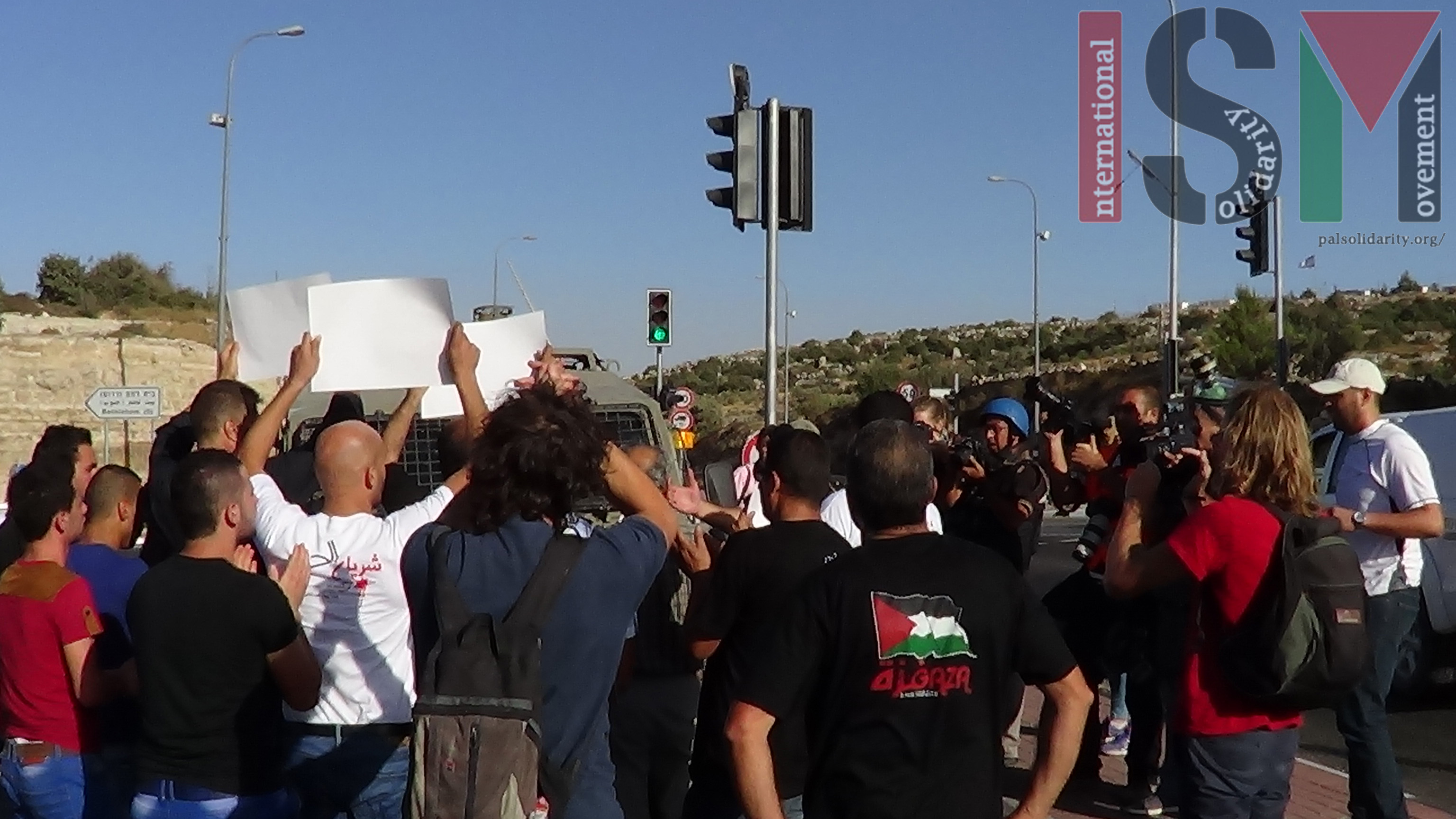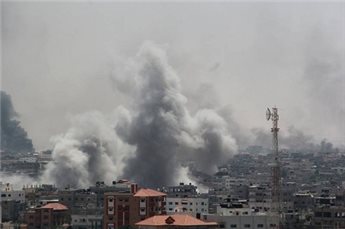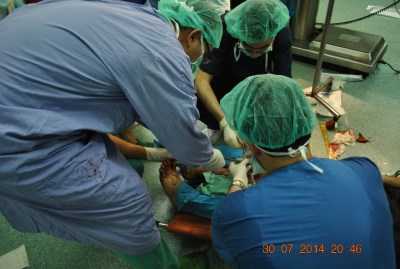Category: Reports
-
Palestinians block settler road in solidarity with Gaza
2nd August 2014 | International Solidarity Movement | Al-Khader, Occupied Palestine On the 30th July, approximately 40 Palestinian and international activists marched from al-Khader gate on the outskirts of Bethlehem and blocked Road 60, which connects all the illegal settlements in the area to Jerusalem, in protest over Israel’s attack on the people of Gaza. The group peacefully marched up the road leading…
-
Gaza Ministry of Health: “Al Najar Hospital in Rafah evacuated as Israeli genocidal rampage continues”
1st August 2014 | Gaza Ministry of Health | Gaza, Occupied Palestine The Ministry of Health Gaza announces the closure of Al Najar Hospital in Rafah, due to Israeli shelling in the vicinity compromising its ability to guarantee the safety of patients and staff. The hospital has now been evacuated, bringing to four the number of…
-
Gaza Ministry of Health: “Gaza surgery being performed in corridors, on the floor
31st July 2014 | Gaza Ministry of Health | Gaza, Occupied Palestine Gaza hospitals are operating under impossible conditions, with surgery now being performed in corridors and on the floor due to the sheer numbers of wounded from massacres such as Shati park, UNRWA school and Shujeiyah market. Lack of theatre space sees two persons being operated…



